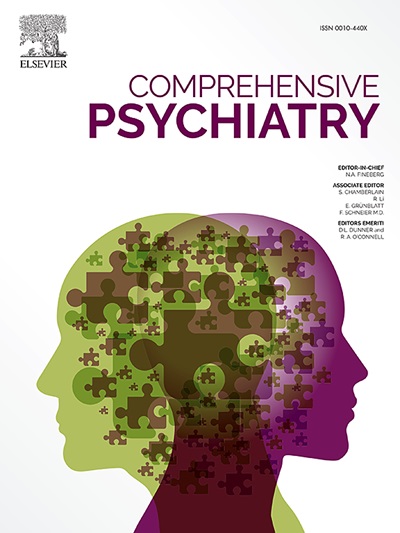Pilot implementation of an online program for family and friends supporting the mental health of paramedics in Australia: Lessons learned.
IF 4.2
2区 医学
Q1 PSYCHIATRY
引用次数: 0
Abstract
Introduction
Paramedics experience disproportionately high rates of mental health concerns, often relying on informal support from family and friends. While this support is vital, it can impose significant strain on family and friends, who frequently lack the necessary resources and skills for their role. To address this, a novel online program, Minds Together, was developed specifically for family and friends to enhance their ability to support the mental health of paramedics while prioritizing their own mental health and wellbeing.
Methods
The feasibility and acceptability of the program was evaluated through a pilot study involving 53 participants randomized to either program or waitlist groups. Data collection included pre- and post-intervention surveys, program usage metrics, post-project surveys, and feedback from user testing. The Global Impact Analytics Framework (GIAF) guided analysis of planning, pre-engagement, pre-readiness, usability, dissemination, adoption, and contextual factors.
Results
Participants valued the program for its lived-experience content and self-paced format. Broad dissemination reached over one million individuals, and usability and relevance were rated highly. However, low engagement and completion rates reflected challenges common to online interventions. Barriers included limited access duration, participants' time constraints, and difficulties in reaching the target audience. Suggestions included flexible access, advanced content options, and targeted outreach strategies.
Conclusion
Minds Together shows promise as a scalable intervention for family and friends of paramedics. Future research will address barriers, explore long-term outcomes, and refine the program to better meet family and friends' diverse needs, improving mental health support for paramedics and their support network.
支持澳大利亚护理人员心理健康的家庭和朋友在线方案的试点实施:经验教训。
护理人员经历不成比例的高比率的心理健康问题,往往依赖于家庭和朋友的非正式支持。虽然这种支持是至关重要的,但它会给家人和朋友带来巨大的压力,因为他们往往缺乏必要的资源和技能来发挥自己的作用。为了解决这个问题,专门为家人和朋友开发了一个新颖的在线项目,名为“同心协力”,以提高他们支持护理人员心理健康的能力,同时优先考虑他们自己的心理健康和福祉。方法通过一项涉及53名参与者的试点研究来评估该计划的可行性和可接受性,该研究随机分为计划组和候补组。数据收集包括干预前和干预后调查、程序使用度量、项目后调查以及来自用户测试的反馈。全球影响分析框架(GIAF)指导了对规划、预参与、预准备、可用性、传播、采用和背景因素的分析。结果参与者对该项目的现场体验内容和自定节奏的形式非常重视。广泛传播达到100多万人,可用性和相关性评价很高。然而,较低的参与率和完成率反映了在线干预面临的共同挑战。障碍包括访问时间有限、参与者的时间限制以及难以接触目标受众。建议包括灵活的访问、先进的内容选择和有针对性的推广策略。结论minds Together有望成为护理人员家属和朋友可扩展的干预措施。未来的研究将解决障碍,探索长期结果,并完善该计划,以更好地满足家人和朋友的不同需求,改善对护理人员及其支持网络的心理健康支持。
本文章由计算机程序翻译,如有差异,请以英文原文为准。
求助全文
约1分钟内获得全文
求助全文
来源期刊

Comprehensive psychiatry
医学-精神病学
CiteScore
12.50
自引率
1.40%
发文量
64
审稿时长
29 days
期刊介绍:
"Comprehensive Psychiatry" is an open access, peer-reviewed journal dedicated to the field of psychiatry and mental health. Its primary mission is to share the latest advancements in knowledge to enhance patient care and deepen the understanding of mental illnesses. The journal is supported by a diverse team of international editors and peer reviewers, ensuring the publication of high-quality research with a strong focus on clinical relevance and the implications for psychopathology.
"Comprehensive Psychiatry" encourages authors to present their research in an accessible manner, facilitating engagement with clinicians, policymakers, and the broader public. By embracing an open access policy, the journal aims to maximize the global impact of its content, making it readily available to a wide audience and fostering scientific collaboration and public awareness beyond the traditional academic community. This approach is designed to promote a more inclusive and informed dialogue on mental health, contributing to the overall progress in the field.
 求助内容:
求助内容: 应助结果提醒方式:
应助结果提醒方式:


